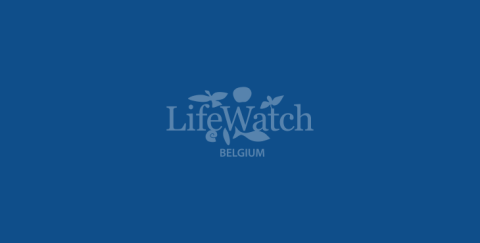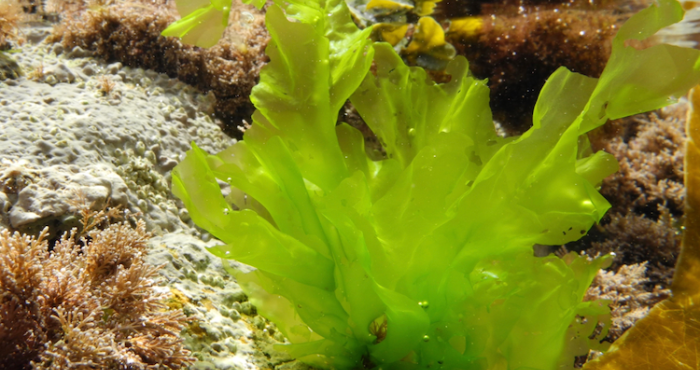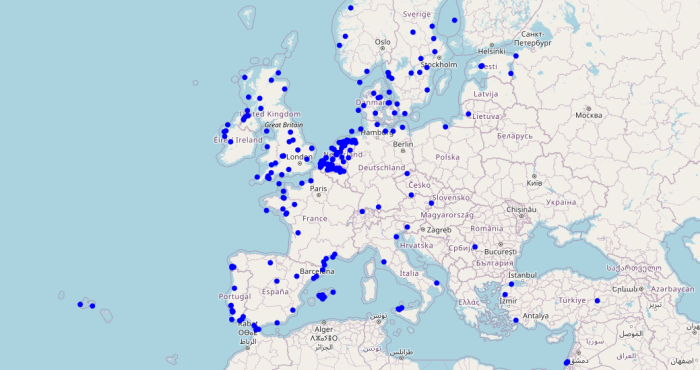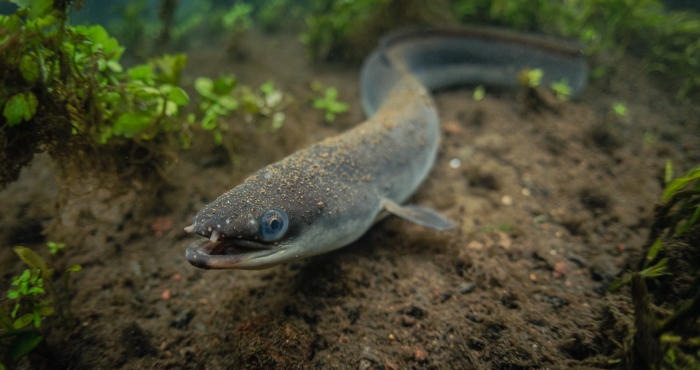WoRMS goes fossil
The LifeWatch taxonomic backbone invests in capturing information on fossil ranges in the World Register of Marine Species

During a workshop on February 6-7 2014 at the Flanders Marine Institute (VLIZ), the taxonomic editors of the Mollusca in the World Register of Marine Species (WoRMS) and the WoRMS Data Management Team (DMT) launched MolluscaBase, a Global Species Database aimed at covering all marine, freshwater and terrestrial molluscs. Furthermore, the Mollusca editors decided to extend their focus to also include the fossil mollusc species.
Although already a lot of tools and options were available to add and document fossil taxa, the group agreed an additional workshop was needed to focus on improvements and additional functionalities related to the storage, usage and display of fossil taxa and their ranges in the Aphia database, the data system behind WoRMS. It was also agreed that this workshop should not be limited to Mollusca editors only. On May 13-14 2014, this fossil workshop was hosted by Serge Gofas at the University of Málaga (Spain).
Within WoRMS, there are currently 19 phyla which contain one or more fossil species. The editors of three phyla – Foraminifera, Mollusca and Echinodermata – are very actively working on the fossil species within their groups, and representatives of these groups were either present at the workshop in Málaga or have provided extensive input and feedback. These three groups will serve as the test cases for capturing information on fossil ranges in WoRMS.
During the workshop the DMT and taxonomic editors discussed the amount of fossil taxa to be added, existing sources for fossil information (both online and offline), possible grounds for collaboration and improvements and additions to the entry of fossil range data into Aphia.
This initiative is supported by LifeWatch, the E-Science European Infrastructure for Biodiversity and Ecosystem Research. LifeWatch is a distributed virtual laboratory which will be used for different aspects of biodiversity research. The taxonomic backbone of LifeWatch aims at bringing together taxonomic and species-related data and at filling the gaps in our knowledge. In addition, it gives support to taxonomic experts by providing them logistic and financial support for meetings and workshops related to expanding the content and enhancing the quality of taxonomic databases.
Although already a lot of tools and options were available to add and document fossil taxa, the group agreed an additional workshop was needed to focus on improvements and additional functionalities related to the storage, usage and display of fossil taxa and their ranges in the Aphia database, the data system behind WoRMS. It was also agreed that this workshop should not be limited to Mollusca editors only. On May 13-14 2014, this fossil workshop was hosted by Serge Gofas at the University of Málaga (Spain).
Within WoRMS, there are currently 19 phyla which contain one or more fossil species. The editors of three phyla – Foraminifera, Mollusca and Echinodermata – are very actively working on the fossil species within their groups, and representatives of these groups were either present at the workshop in Málaga or have provided extensive input and feedback. These three groups will serve as the test cases for capturing information on fossil ranges in WoRMS.
During the workshop the DMT and taxonomic editors discussed the amount of fossil taxa to be added, existing sources for fossil information (both online and offline), possible grounds for collaboration and improvements and additions to the entry of fossil range data into Aphia.
This initiative is supported by LifeWatch, the E-Science European Infrastructure for Biodiversity and Ecosystem Research. LifeWatch is a distributed virtual laboratory which will be used for different aspects of biodiversity research. The taxonomic backbone of LifeWatch aims at bringing together taxonomic and species-related data and at filling the gaps in our knowledge. In addition, it gives support to taxonomic experts by providing them logistic and financial support for meetings and workshops related to expanding the content and enhancing the quality of taxonomic databases.



